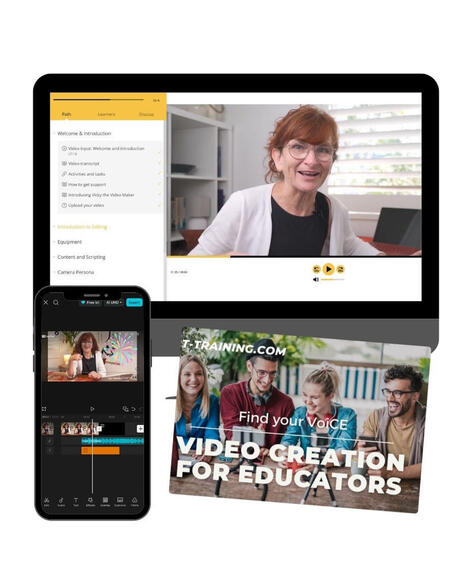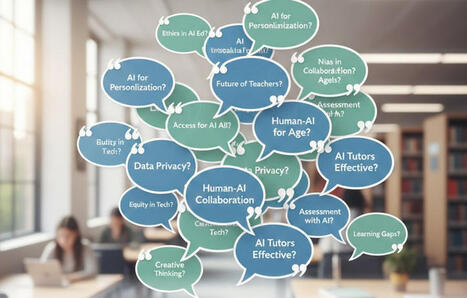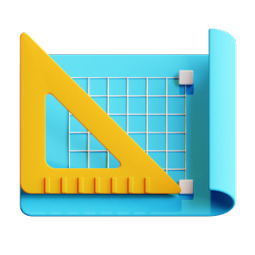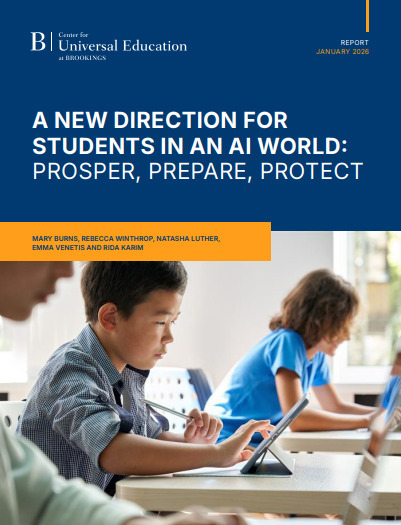 Your new post is loading...
 Your new post is loading...

|
Scooped by
Nik Peachey
January 20, 1:16 AM
|
Video is a great way to promote your online teaching services or make money from online courses, but for a lot of teachers the idea of getting in front of a camera or learning an editing programme is just too daunting. If this is you, Jo Gakonga's Video Creation for Educators programme might be just the ticket. Jo's course gives teachers the confidence and skills to make video they're proud to use -check it out and get £50 off with the code NIK50

|
Rescooped by
Nik Peachey
from Digital Delights
February 16, 1:47 AM
|
I'm dictating this whilst driving to the gym - well the first draft at any rate. Not because I'm irresponsible behind the wheel - the car has plenty of bells and whistles to catch my lapses and I’m still as focused on my driving as I would be if I were talking to a passenger…
Via Ana Cristina Pratas

|
Rescooped by
Nik Peachey
from Nik Peachey
February 11, 5:45 AM
|
These AI guidelines for teachers, now with checklists, are part of a series of steps designed to address that gap. The British Council is committed to supporting teachers with the skills, tools and resources they need for managing their classrooms and keeping up to date with key developments. These AI guidelines offer principles to help teachers make responsible choices when using AI in teaching or for continuing professional development. While primarily designed for English language teachers, these guidelines may also be useful for other subject teachers in English-medium education. We hope the guidelines are a valuable resource for teachers, empowering them to take an informed, ethical and context-specific approach to integrating AI into their teaching.

|
Rescooped by
Nik Peachey
from Digital Delights
February 9, 5:13 AM
|
AI generated image, 100% human-authored text Artificial Intelligence has entered the world of education like an explosion, leaving u
Via Ana Cristina Pratas

|
Scooped by
Nik Peachey
February 6, 2:02 AM
|
Learn how educators developed practical solutions to issues faced by schools across the globe in our brand new collection of short evidence-based articles.

|
Scooped by
Nik Peachey
January 19, 1:06 AM
|
How can we evaluate, integrate and govern these rapidly evolving technologies responsibly, so that they enrich rather than displace the irreplaceable human elements of education? We have
written this book to try and address these questions, to ofer guidance for realizing GenAI’s potential while upholding the values of thoughtful pedagogy and academic rigour.

|
Scooped by
Nik Peachey
January 10, 5:39 AM
|
A practical, evidence-based comparison of Colossyan, Synthesia, HeyGen, and NotebookLM

|
Scooped by
Nik Peachey
December 29, 2025 11:52 AM
|
Wispr Flow and the slew of AI voice-to-text technology are shifting us from written to spoken communication. What does this mean for teaching oracy and literacy in schools? The Technology That Made Me Rethink My Entire Approach to Writing I'm dictating this blog post. Not transcribing a draft I've written by hand, not reading from…

|
Rescooped by
Nik Peachey
from e-learning-ukr
December 15, 2025 2:31 AM
|

|
Scooped by
Nik Peachey
December 2, 2025 12:51 AM
|
What has September to November 2025 taught us about the future of learning? Since September 2025, the AI landscape in education has transformed at a pace that would make your head spin - it certainly has mine. I've been tracking these developments across LinkedIn posts, classroom experiments, and late-night deep dives into model capabilities (because…

|
Scooped by
Nik Peachey
November 20, 2025 4:50 AM
|
This has been designed to be used as a kind of emotional journal, so you can click on the one you are feeling and write a sentence or two about it and why you are feeling that way.
|

|
Scooped by
Nik Peachey
February 16, 1:49 AM
|
Quiet quit your TEFL job? Here's how to fall back in love with teaching using Action Research - turn your classroom into a laboratory and rediscover curiosity.

|
Scooped by
Nik Peachey
February 16, 1:36 AM
|
This report highlights the work of our Alliance and Communities of Practice Members in advancing EdTech, Foundational Literacy and Numeracy, and STEM initiatives across lower-resource contexts. It also shares aspirations and strategic priorities for 2026.

|
Scooped by
Nik Peachey
February 11, 12:55 AM
|
This article aims to set out the parameters faced by educators in the light of the rapid development of AI programmes. There are also the philosophical challenges that we face which is a major subject for further discussion. The thesis, that to counter or balance the impact of AI we must improve our education system and modernise it to prepare our students for a rapidly changing world.

|
Scooped by
Nik Peachey
January 26, 12:53 AM
|
I recently encountered a term that stopped me in my tracks - cognitive outsourcing (thanks to Professor Miles Berry for that one!). We're all well-acquainted with cognitive offloading. That's the act of letting a tool take the weight of a task so we don't have to. But "outsourcing"? That feels different. It sounds distinctly middle-class,…

|
Scooped by
Nik Peachey
January 10, 1:47 AM
|
Article Sidebar PDF Published: Feb 28, 2023 DOI: https://doi.org/10.58459/rptel.2023.18020 Keywords: Video-based learning Online education Video lectures Cognitive Theory of Multimedia Learning Video annotation Talking head Main Article Content Abstract When it comes to asynchronous online...

|
Rescooped by
Nik Peachey
from Educational Technology News
January 8, 5:30 AM
|
The AI landscape will keep shifting—new tools, faster models, endless possibilities. But clarity, not speed, will determine who succeeds.
Via EDTECH@UTRGV

|
Scooped by
Nik Peachey
December 24, 2025 3:04 AM
|
Learn to collect far more data and information about a remote English lesson than it is about most physical classroom lessons with this lesson tips for teachers

|
Scooped by
Nik Peachey
December 19, 2025 6:41 AM
|
When I hear instructors talk about “banning AI,” I often think about the missed opportunity. Instead of building environments where students can engage in honest, critical conversations about how these tools shape our work, we reduce everything to a cat-and-mouse game. Teachers invent restrictions, students invent workarounds. Nobody learns much except how to evade the system.

|
Rescooped by
Nik Peachey
from Creative teaching and learning
December 6, 2025 2:52 AM
|
"We’re back with our roundup of the most insightful studies of the year, from the power of brain breaks to groundbreaking research on AI, cell phones, and handwriting in the classroom...".
Via Leona Ungerer

|
Scooped by
Nik Peachey
November 25, 2025 5:20 AM
|
If there’s a single shift the AI tutor brings to lifelong learning, it’s this: learning becomes less about consuming content and more about entering a dialogue. You ask, it responds. You try, it observes. You reflect, it reframes.
|






 Your new post is loading...
Your new post is loading...



































Very much agree with this well argued piece.